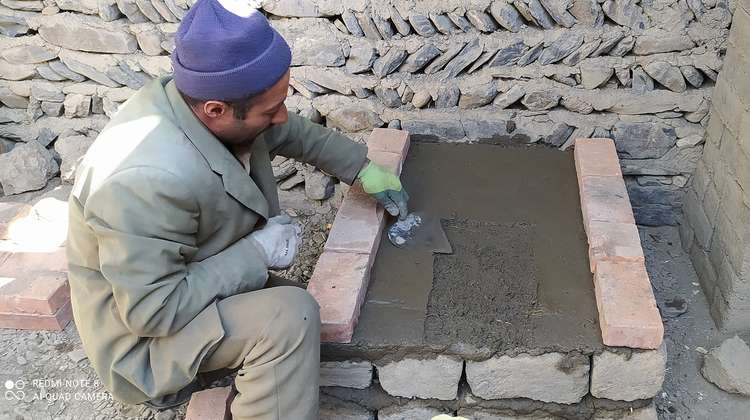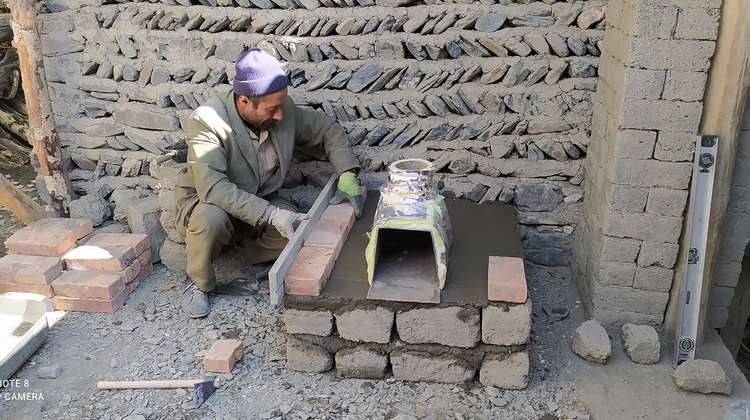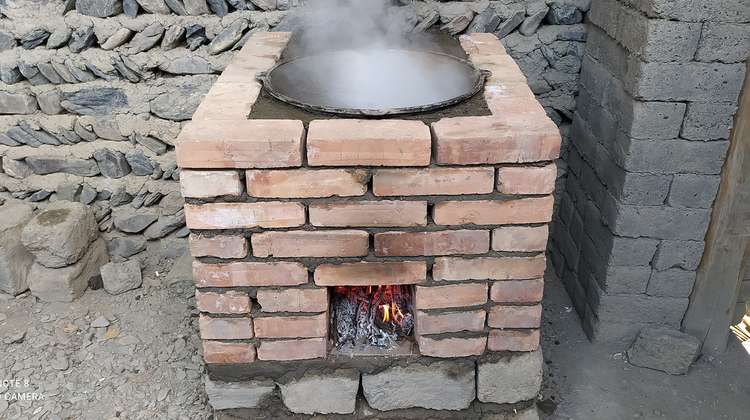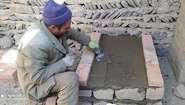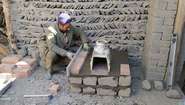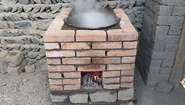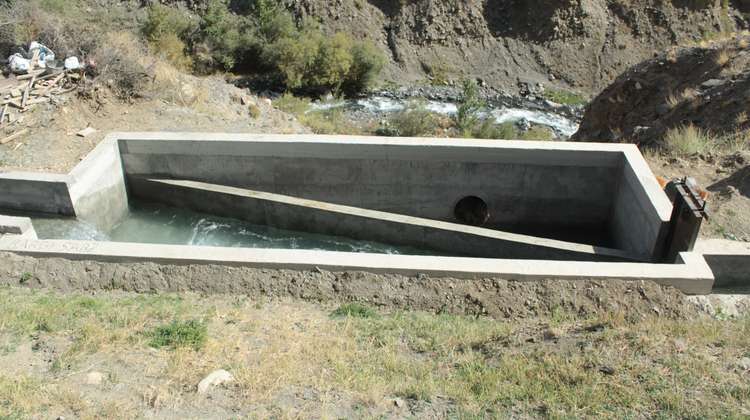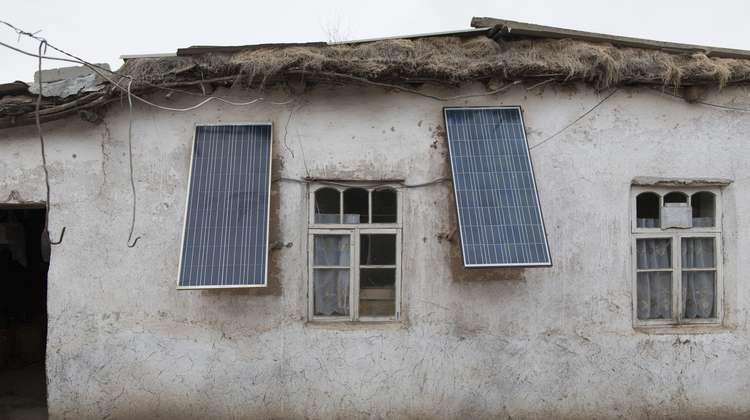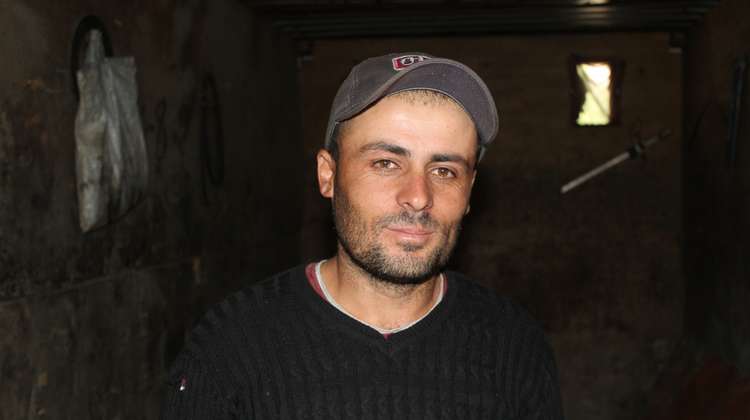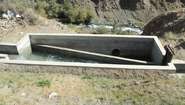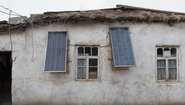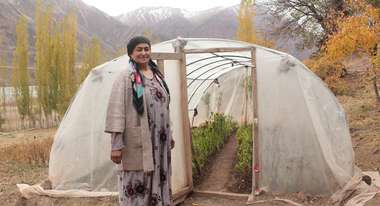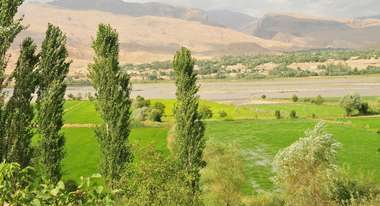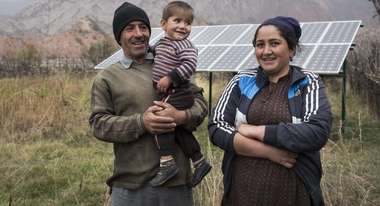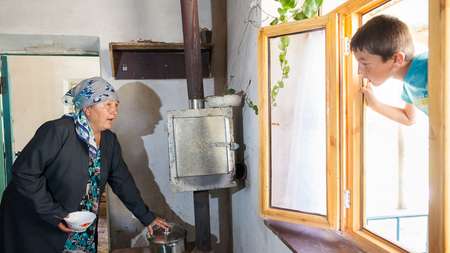
Saving the forest with electricity
Zohir Zohirov is 51 years old and lives with his five children in the village of Dehisor in the remote region of Kuhistoni Mastchoh. In this mountainous area, the main obstacle for development is the lack of electricity. The national power grid does not reach the villages in the upper Zarafshan Valley, where winters are long and harsh. The consequences are severe: People depend on firewood, dried dung and coal for heating and cooking. Deforestation, erosion of pastures, and high rates of respiratory diseases, especially among women, are the result.
Efficient stoves from the potato farmer
Zohir Zohirov used to work full time as a potato farmer, but when he attended a Welthungerhilfe information session on modified cooking stoves, he immediately decided to apply for training: "I only attended school for 3 years. Since it was very far from our village, I did not have the opportunity to graduate. But I've always been interested in handicrafts, and when I heard about the trainings, I decided to try my hand in this field."
And his stoves are very popular. This is not surprising, because the new stoves have many advantages. Not only are they more efficient and require less wood, but smoke pollution is also drastically reduced. Additionally, they make cooking easier because food is less likely to burn. The positive impact on the environment is great. The projects implemented by Welthungerhilfe in Tajikistan save more than 20,000 tons of CO2 emissions every year. This is equivalent to the annual ecological footprint of about 2,700 EU citizens. The improved cooking facilities contribute 71 percent of this figure.
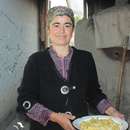
The cooking stove is very popular among us and the villagers spend less time collecting firewood and dung.
Sailiniso Schodizoda is excited about her new oven.Meanwhile, Zohir Zohirov builds cookstoves not only in his home village of Dehisor, but also in surrounding communities. "I am the only one in the Dehisor area who builds cookstoves, so sometimes I drive up to 20 km to other villages to install them."
Not only stoves, but also electricity
The more efficient stoves are only one component of the project in Tajikistan. The poor supply of electricity also affects schools, hospitals and other state institutions. Without electricity, they cannot even provide basic services. Stable and affordable electricity is key to the success of workshops and small businesses. The dependence on generators for all electrical equipment and the associated costs hinder the market entry of local entrepreneurs, and transportation and travel costs for the population are correspondingly high.
To change this, Welthungerhilfe is using renewable energies, primarily hydropower from the tributaries of the Zarafshan. Together with our partner organization Bargi Sabz, small hydropower and solar plants are being built, enabling the villagers to overcome the local energy crisis and sustainably remove a significant obstacle to development.
Key Activities
- Establishment of local production facilities for energy efficient technologies such as double-glazed windows or fuel saving cook stoves
- Subsidization of energy efficient technologies for vulnerable households
- Constructions of eight micro hydro powerplants and solar plants which can fulfill the electricity needs of 6,000 people
- Establishment of local repair workshops for the power plants and training of technicians
- Formation of an electricity company at district level




